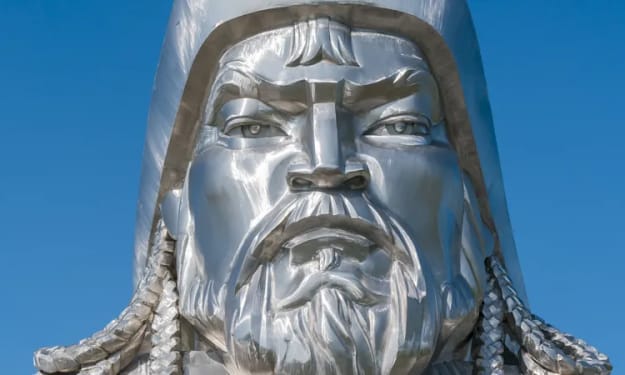Who was George Washington?
A short summary of the life of George Washington

George Washington, also known as the "Father of America," is a person strongly ingrained in the fabric of American history. His leadership, morality, and unshakable commitment to the cause of liberty were crucial in the establishment of the United States. In this article, we will look at George Washington's early years, his vital role in the American Revolution, his presidency, and the lasting impact he has had on the country.
George Washington was born in Westmoreland County, Virginia, on February 22, 1732, into a poor family. Augustine Washington, his father, was a successful planter and landowner, and Mary Ball Washington hailed from a well-connected Virginia family. Despite his lack of a formal education, young George demonstrated a strong work ethic and an early interest in surveying, both of which would be useful in his future undertakings.
Washington's childhood was filled with tragedy and grief. His father died when he was 11 years old, leaving him with only a tiny inheritance. Lawrence Washington, George's half-brother, became an important influence in his life, introducing him to influential persons and assisting him in obtaining his first work as a surveyor for the Virginia Company.
George Washington's rise to prominence in American history began with his military service during the French and Indian War (1754-1763). His battle spirit and leadership talents drew the attention of colonial officials, laying the groundwork for his eventual role as Commander-in-Chief of the Continental Army.
The commencement of the American Revolution in 1775 marked a watershed moment in Washington's life. He was named Commander-in-Chief of the Continental Army, a role he embraced with humility and reluctance at first. Washington faced various hurdles during the war, including limited supplies, hard winter conditions at Valley Forge, and a superior British military.
Washington's leadership, strategic intelligence, and unshakable determination, on the other hand, were critical in gaining American freedom. His epic Christmas night crossing of the cold Delaware River and subsequent victory at Trenton are only two examples of his superb military leadership.
After the Treaty of Paris formally ended the war, Washington's decision to resign his military commission in 1783 was a watershed point in world history. His voluntarily surrender of power established a precedent for peaceful leadership transitions and contributed to the establishment of the notion of civilian rule over the military—a vital feature of American democracy.
After the American Revolution was successfully over, George Washington returned to his beloved Mount Vernon, seeking to live out his days in peace. However, his country required him once more. The Articles of Confederation's flaws had been exposed, and the new United States faced the difficult job of constructing a more functional government.
Washington was elected president of the Constitutional Convention in Philadelphia in 1787. His presence gave the proceedings enormous credibility, and his leadership was important in establishing the United States Constitution, which is still the supreme law of the land today.
George Washington was unanimously elected the first President of the United States in 1789. As president, he presided over the establishment of the new federal government and established many of the practices and norms of the presidency that still exist today, such as the two-term limit. Washington's administration was distinguished by a firm dedication to national unity, fiscal responsibility, and the rule of law.
The establishment of the Cabinet system, which featured figures such as Alexander Hamilton as Secretary of the Treasury and Thomas Jefferson as Secretary of State, was one of his most significant acts as president. These early leaders aided in shaping the policies and institutions that would determine the country's course.
George Washington's impact stretches far beyond his role as the nation's first president and his leadership throughout the American Revolution. His character, characterized by integrity, humility, and a deep sense of duty, established a standard for leadership that continues to inspire generations of Americans.
In his farewell address in 1796, Washington underscored the necessity of national unity, warned against political factions, and emphasized the value of remaining neutral in international affairs. These principles are still significant in modern American politics.
Washington's Mount Vernon estate, in addition to his political legacy, has been preserved as a historic landmark, affording insight into 18th-century plantation life and the personal history of the nation's founding father.
George Washington's life and leadership exemplify the American spirit's ideals of dedication, sacrifice, and a devotion to the greater good. Washington's impact on the United States is immense, from his early days as a surveyor to his important role in the American Revolution and presidency. His lasting legacy as the "Father of America" continues to inspire and guide the nation, reminding us of the values and principles that formed the United States.
About the Creator
John Ammerlane
I love writing about historical figures and events, but also about trivia, geekiness and (weird) sillyness.
Enjoyed the story? Support the Creator.
Subscribe for free to receive all their stories in your feed. You could also pledge your support or give them a one-off tip, letting them know you appreciate their work.






Comments
There are no comments for this story
Be the first to respond and start the conversation.